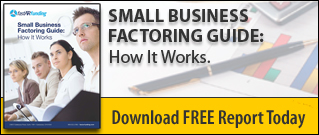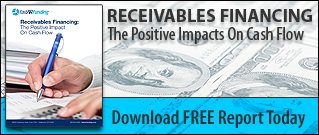 Many Successful entreneurs follow the golden rule of small Business: Do what you love and success will follow. And while it may be true that the vast majority of these entrepreneurs don't love spreadsheets, general ledgers, credits and debits, and factoring accounting facilities, running a business successfully has a lot to do with the financing of the small enterprises, and in particular, how to properly account for business transactions.
Many Successful entreneurs follow the golden rule of small Business: Do what you love and success will follow. And while it may be true that the vast majority of these entrepreneurs don't love spreadsheets, general ledgers, credits and debits, and factoring accounting facilities, running a business successfully has a lot to do with the financing of the small enterprises, and in particular, how to properly account for business transactions.
It is true that accounting for invoice factoring will require some changes but for some small business owners the change in accounting can seem overwhelming. The most important thing is to identify and use the correct method of accounting for your factoring facility from the beginning.
The use of an experienced accountant who is knowledgeable, and familiar with invoice discounting services is invaluable. He / she will be able to guide you through the various options for the accurate accounting of invoices factored. For example, if structured a certain way, accounts receivable factoring may give the impression of a loan based on the assets of the business. However, done differently, this same transaction can reduce liabilities and make the balance sheet appear stronger.
The following is a summary of how we have seen our factored clients account for their factored invoices (remember, our suggestions are no substitute for a licensed, certified public accountant).
Assumptions:
Factored Invoice $10,000
Advance Rate 80%
Payment by Customer $10,000
Before purchase of the invoice by your factor, (hopefully its Fast A/R Funding) you should be showing this invoice as a current asset, accounts receivable, for $10,000.
When the invoice is purchased and you receive an advance for 80% of the invoice face value of the invoice you should relieve the $10,000 invoice from your accounts receivable, increase your cash account by $8,000 and have a new current asset called "Due From Factor" for the remaining $2,000.
When the invoice is paid by your customer to your factoring company you will then relieve the new "Due From Factor" by $2,000.
One last suggestion. Search on google for a public company that is factored, there are more than a few out there, and see how they account for their invoices sold to a factor.
Remember, this is only meant to be a very superficial introduction. When you begin factoring the advice of a good certified public accountant is essential.
For more information on factoring accounting and electronic factoring in general, make sure to subscribe to our blog and follow us on twitter.
Disclaimer: The information above is for general educational purposes. It is not a substitute for practical legal and accounting advice from certified professionals.











